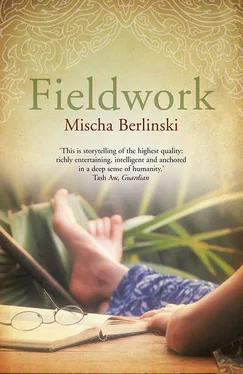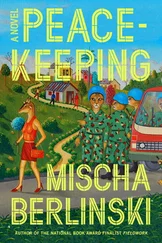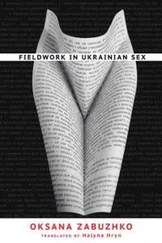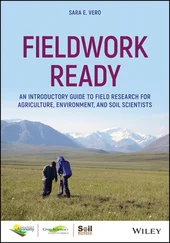My description of the rice-planting cycle has relied on Edward F. Anderson's Plants and Peoples of the Golden Triangle: Ethnobotany of the Hill Tribes of Northern Thailand (Portland: Dioscorides Press, 1993). This is far and away the best introduction to the modalities of hill-tribe agriculture, and I recommend it heartily to anyone proposing to travel in northern Thailand. A reading of Mr. Anderson's ethnobotany will transform your understanding of the region. Another invaluable book for the traveler is Christian Gooden's Around Lan-na: A Guide to Thailand's Northern Border Region (Halesworth: Jungle Books, 1999). Mr. Gooden is fearless — he traveled the very remotest regions of northern Thailand on a motorbike, with his wife and their two-year-old daughter —exceptionally erudite, and a great storyteller.
Those who wish to stay home, however, can do no better than Richard K. Diran's marvelous photo collection The Vanishing Tribes of Northern Burma (London: Seven Dials, 1997). See if you can find the photos of Farts-a-Lot, Lai-Ma, and Hupasha!
The conversion of tribal highlanders to Christianity is a subject of considerable interest in the contemporary anthropological literature. I recommend very highly the whole of vol. 27, no. 2 (September 1996) of the Journal of Southeast Asian Studies , entitled Protestants and Tradition in Southeast Asia . I benefited particularly from Cornelia Ann Kammerer, "Discarding the Basket: The Reinterpretation of Tradition by Akha Christians of Northern Thailand" (pp. 320–49); and Edwin Zehner, "Thai Protestants and Local Supernaturalisms: Changing Configurations" (pp. 293–319).
I read, and reread many times, E. Paul Durrenberger's monograph Lisu Religion (Northern Illinois University, Occasional Paper no. 13, 1989). I can't claim that I really understood it, but his description of real Lisu rites, particularly medical rites, gave me the confidence to make my Dyalo as — well, weird is really the word I'm looking for — as I wanted them to be. Next time you pass through a good university library, spend a half hour in the stacks with Mr. Durrenberger's ethnography. You will be rewarded with a pleasant sense that the world is much, much larger, and much, much stranger than you imagined. (I suppose Lisu readers would have pretty much the opposite reaction.)
Research for this novel has introduced me to a wonderful genre of literature — the anthropological memoir. Two practitioners of this art stand out above all others: Nigel Barley and Hortense Powdermaker. I say with no hesitation whatsoever that Mr. Barley's The Innocent Anthropologist: Notes from a Mud Hut (New York: Penguin, 1983) is the best book of its genre, perhaps one of the best books ever . I also loved his succeeding books, Not a Hazardous Sport (New York: Penguin, 1988) and Ceremony (New York: Henry Holt, 1986). Mr. Barley taught me, to the extent that an outsider and neophyte can ever understand, just what an anthropologist does all day long, and how hard it is to do it.
Hortense Powdermaker is precisely the woman I would most like to sit next to on a very long plane flight: intelligent, experienced, with a sedate, dry wit. It was through her memoir Stranger and Friend: The Way of an Anthropologist (New York: Norton, 1966) that I was introduced to Bronislaw Malinowski and the South Pacific island of Lesu.
Also very useful was Peggy Golde, ed., Women in the Field: Anthropological Experiences (Berkeley: University of California Press, 1986), particularly Kathryn Brigg's essay, "Kapluna Daughter."
Having Lorin Stein edit my prose was a humbling experience — but also very exciting. First, he cut whole chapters — and he was right: I didn't need them. Then he suggested I cut dull pages; and while I was at it, a particular subplot or two that were just a little overwrought and labyrinthine. I believe what he wrote in the margin was "Snoozin' here." (On another occasion, he wrote, "No, no, no!" directly across the text; also, "Why, Mischa, why ?") He eliminated wordy paragraphs, verbal tics, imprecise adjectives, just about all the adverbs, shoddy dialogue, and most of my pompous interjections. He was always right. Occasionally, I would get myself worked up into a righteous authorial lather and STET a deletion or two. After a few weeks, I'd go back and look at his suggestions again — and discover that he was, as usual, totally right. Lorin is also responsible for the novel's title, and he translated Psalm 23 into Dyalo.
There is nothing, absolutely nothing, that a novelist needs more than acres of grassy time in which to write. My mother gave me that gift. I was broke almost from page one of this novel, and all through its creation she supported me, telling me all the while the things that a child most wants to hear: that what I was doing was valuable; that I wasn't wasting my time; and that everything would work out in the end. What more could a son ask for?
The rest of my family played their part also. It was my sister, Claire, who introduced me to the novel-writing game; without her encouragement and example, I would never have thought to write this one. She read it at least a thousand times over, and every time she helped me make it a little better. My father, David Berlinski, who also read it a zillion times, gave me the model of literary excellence to which I will always aspire.
My agent, Susan Ginsberg, is a lot like Rice — a mysterious, almost supernatural force without whom the Berlinskis would be hungry.
Now I must say a word about the love of my life, Cristina Iampieri. When Cristina invited me into her studio apartment in Torino, I don't know if she quite reckoned on spending the next two and a half years not only with me but with a murderous anthropologist who hated to see anyone before ten; an extended family of missionaries; and an entire tribal village. Our apartment was not much larger, I should add, than the book now in your hands. In the mornings, she made all of us espresso, pot after pot; she rarely said anything about the water buffalo droppings in the kitchen; and I think Thomas Walker had a little crush on her by the end. But who wouldn't love her? She is wonderful and beautiful and incredibly patient; she has been the best of friends; without her, I couldn't have written a word. Grazie .












